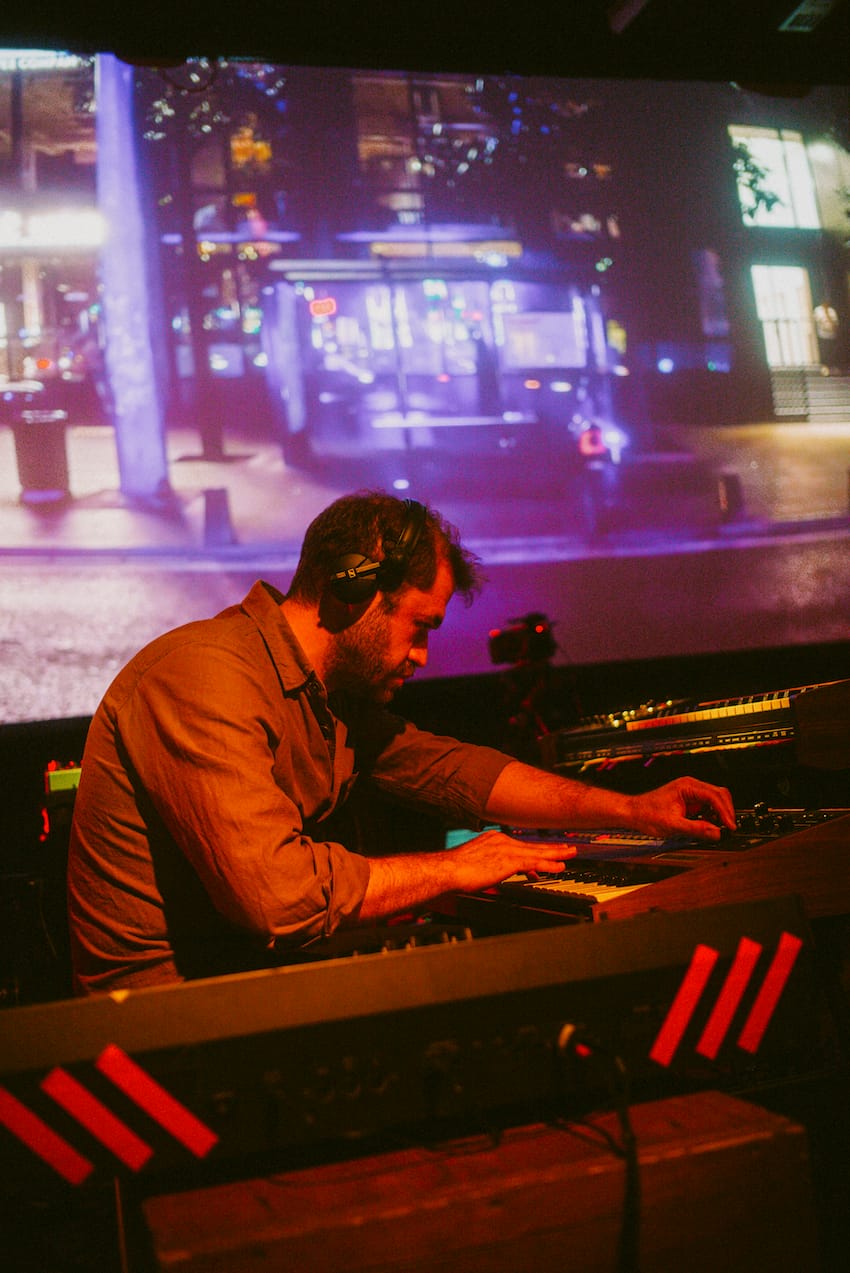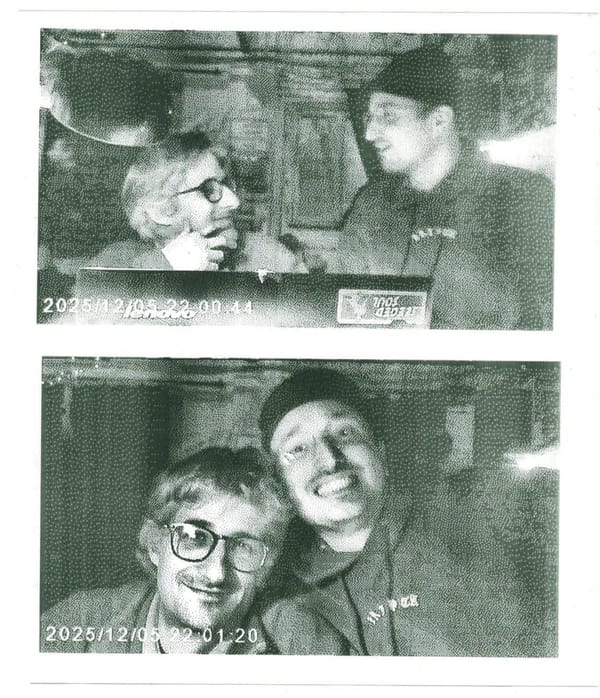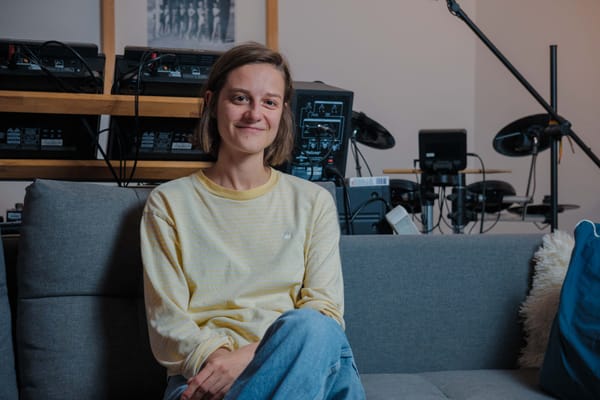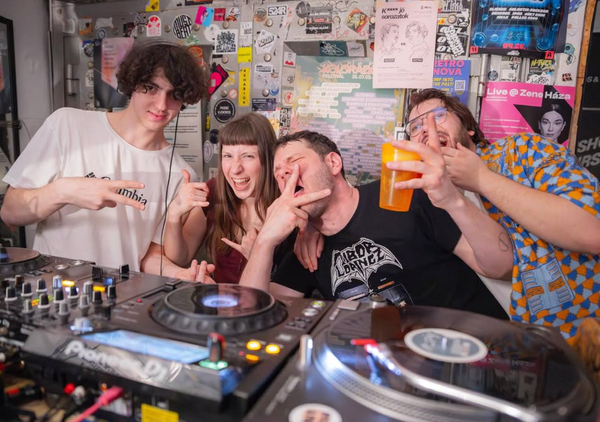Register for free to receive our newsletter, and upgrade if you want to support our work.
“Mornings for Sale / Satılık Sabahlar”, an audiovisual performance series initiated by Cologne based musician Ozan Tekin, transforms artistic spaces into a tapestry of sound and emotion. Based on the assumption that residents of Istanbul experience the night-and-day cycle without realizing it, each “Mornings for Sale” performance is a search for understanding the multiple senses that early mornings of a particular urban landscape contain.
For the performance at Niehler Freiheit in Cologne in 2023 Ozan Tekin collaborated with the fellow Turkish musician Berke Can Özcan; they improvised accompanied by the visual work of the video artist and director Tuğçe Kep.
Ozan, can you tell me about the inspirational moment for “Mornings for Sale / Satılık Sabahlar“ world?
Ozan Tekin: In 2016, while living in Istanbul, I often found myself wandering the city in the early hours of the morning. It was during these quiet, pre-dawn moments that I noticed the börek shops stood as natural gathering points — where night owls were wrapping up their evenings and early risers were beginning their days. These intersections of time led me to a fascinating realization: in Istanbul, the seamless cycle of night and day unfolds almost unnoticed, with people unknowingly caught in its rhythm. It was this observation that inspired the concept of “Mornings for Sale / Satılık Sabahlar.”
Was this a group process already, or how did the musicians involved end up working together?
In the first episode, I performed an improvised solo ambient set in 2016, but my vision from the outset was to develop a performance series that would foster collaboration between different musicians and visual artists. It took seven years to bring the second episode to life, in which I had the privilege of collaborating with Berke Can Özcan. Over the years, we’ve worked together remotely, developing a strong musical synergy. However, I always wanted us creating music side by side in the same space. In 2023, that vision finally came to life when Berke came to Cologne, and we had the opportunity to perform together live at Niehler Freiheit for “Mornings for Sale / Satılık Sabahlar: No.2”.
I love the premise that the people experience a blue hour / morning awaking of a city are not really aware of how integral they are. That said, do you feel like this specific time of day is of a higher matter to you than others?
During my time in Istanbul, I was naturally more attuned to the night. I found that I thrived in the quiet hours when the bustling city was at rest. The blue hour, in particular, held a special significance for me—it became a visual cue, signaling the end of my day and the beginning of a new one for those who rise early. For me, the effect of the blue hour has always been more profound than that of a sunset. It’s a moment that invites deep contemplation, sparking a kind of productive introspection.
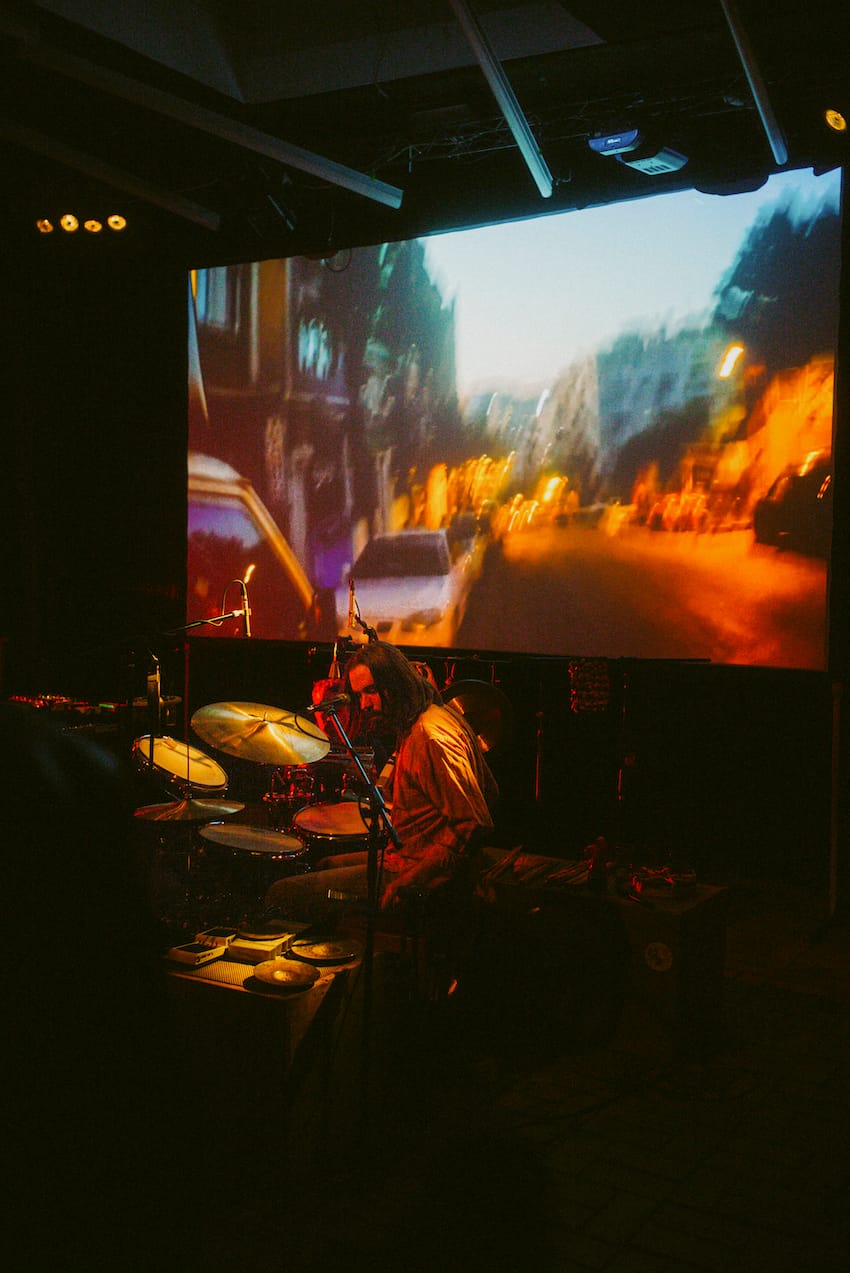
Coming back to your premise, it is not totally true. I, as a lifelong raver, always hate-loved that moment of coming out of a club and the sun is coming up or even all there bright and confronting, both a little catholic reminder of „wasted life in the club“ as well as the beautiful ending ceremony of the rituals of the nights shared with other humans. Same goes, less positive emotional for people ending their night shifts at shitty jobs. They for sure reflect how the people just waking up look at them.
I think you get the picture, where this question is leading to: how do they relate to “Mornings for Sale / Satılık Sabahlar“?
The concept behind this project is to explore the delicate balance between day and night life, particularly in vibrant, fast-paced cities like Istanbul. In these urban environments, many people work through the night, often without realizing they are serving those who work during the day. Conversely, the reverse is also true. This cyclical flow of day and night is not only a rhythm of time but a shared experience among people. In large cities, both the daytime and nighttime communities are equally vital, each fueling the other. I believe that, whether you’re a night owl or an early riser, “Mornings for Sale / Satılık Sabahlar” offers a perspective that everyone can relate to.
The documentation just released is dedicated to Istanbul. What does the city mean to you?
Living in Istanbul means experiencing constant contrasts and chaos. It’s easy to find yourself caught in the city’s endless flow. Living in such city can make you feel more alive, while also making you feel as though a part of yourself is dying at the same time. Being stuck in traffic or being stuck in yourself or being stuck in between west and east is highly probable there. Istanbul is vibrant and magnetic, drawing you in with its energy and charm. But at the same time, it can make you feel small, lost in the crowd, both physically and mentally.
You mentioned that you would love to develop a series, for example in Hong Kong, London, New York. Does it have to be big cities or would the idea also work in let’s say Bochum?
When I moved to Bochum, I felt compelled to continue the project there. However, after living in a smaller city, I realized that the blue hours didn’t hold the same energy or significance. It became clear that the vibrant, constant pulse I was looking for only exists in larger cities, where daily life never stops. As a result, I decided to focus this project solely on major metropolises with a 24/7 rhythm.
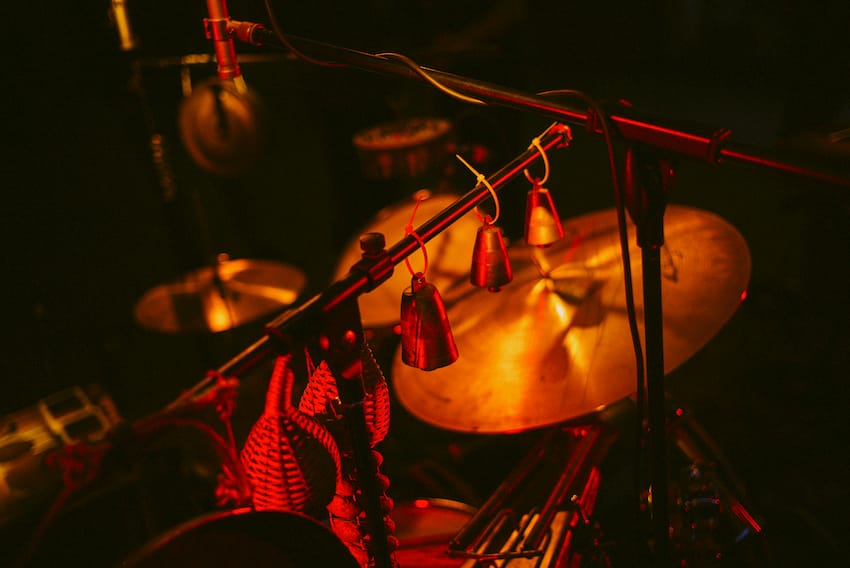
So far we did not touch base for real with the music element of “Mornings for Sale / Satılık Sabahlar“, you improvise with your fellow musicians to the video. You call the whole project an ode to improvisation. What is it that gets you so excited about improvisation?
There are countless ways to connect with music and create it. I work across various genres, using different tools and instruments, often within a structured framework. But sometimes, I feel a strong need to express myself without any structure. It’s like having a conversation rather than writing a formal paper. Improvisation allows me to fully embrace the moment, and also allows my thoughts to flow in a unique stream of consciousness. It’s intimate and uplifting, all about embracing freedom and spontaneity.
Do you have role models in that field?
CAN has been one of my biggest influences in free improvisation, along with Charles Mingus and Sun Ra.
You lived yourself for a long time in Istanbul. So, in a way, when you improvise to the video you also improvise to your memories of the city, right?
That’s a nice question! I lived in Istanbul for 12 years, spending my entire 20s there. The city has had a huge impact on me, and I carry countless memories and emotions from that time. When I improvise to a video shot in Istanbul, I often find myself reflecting on those memories. Many of the districts Tuğçe walks through in the video are places I’ve spent a lot of time in, and many have been deeply affected by gentrification. Our improvisation to this video can be seen as a response to the gentrification driven by flawed politics, which has led to a loss of public memory and lasting trauma over the years.
Last two questions are Istanbul questions:
Favorite spot in the city? Why so?
I’d say the South Campus of Boğaziçi University. I studied there years ago, and it still feels like one of the most privileged spots to view Istanbul. Nestled on a hill, surrounded by lush greenery, and right next to the Bosphorus, it offers a sense of tranquility. Despite being in the heart of the city, it feels like the perfect escape from the chaos around it.
Favorite ferry? Why so?
Beşiktaş to Kadıköy, without a doubt. It’s the route I took most often, and it only takes about 20 minutes. Being on a ferry in Istanbul has a way of calming the mind and helping you feel grounded. It’s probably what I miss most about the city. Honestly, it’s one of my favorite things to do in Istanbul.
This article is brought to you by Kaput Mag as part of the EM GUIDE project – an initiative dedicated to empowering independent music magazines and strengthen the underground music scene in Europe. Read more about the project at emgui.de.
Funded by the European Union. Views and opinions expressed are, however, those of the author(s) only and do not necessarily reflect those of the European Union (EU) or the European Education and Culture Executive Agency (EACEA). Neither the EU nor EACEA can be held responsible for them.


